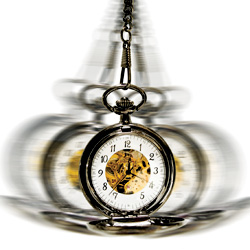Weight Loss by Telephone? It Works and Here’s Why.
Weight Loss by Telephone? It Works and Here’s Why.
If you are looking for a weight loss program that costs less and is more convenient than a traditional clinic-based approach, then you may want to investigate weight loss over the telephone. In a major study, researchers found that individuals coached exclusively by telephone lost almost as much (within two pounds) as the more expensive doctor-administered program.
The researchers found that telephone-based weight loss programs are a viable alternative to the more expensive doctor-administered programs. There are four areas that serve as a foundation for the success of a top telephone-based approach.
Knowledge
Participants are taught to make clear distinctions between macro-nutrient groups; proteins, carbohydrates (refined versus unrefined, fibrous, watery), and fats (healthy and unhealthy). For example, because of countless millions of advertising dollars, many believe that nuts and peanut butter are protein sources, as I did for many years. In reality, they are fats and, although tasty and satisfying and the “healthy” version, they must be consumed in moderation.
Participants are taught to begin to recognize portion sizes of macro-nutrients. Most diet experts generally agree on what constitutes a portion for each of the macro-nutrient groups. Proteins (110 calories per portion). Fats (45 calories per portion). Carbohydrates must be further separated into sub-groups: fruits (60 calories per portion); vegetables (25 calories per portion); and starches (70 calories per portion).
At the point where clients begin to recognize what an equivalent portion looks like, they can then begin to make much better choices in not only food but also in terms of the all-important concept of portion control. For instance, walnuts (a healthy fat, a 45 calorie serving is four (4) halves). A portion of brown rice (70 calories) is only one-third a cup. In a recent article, it was reported that the average Chinese lunch is likely to contain 1,300 calories. This can and does spell disaster on a reduced-intake program because of the need for intake accuracy.
Phone-based programs also follow a low-calorie approach initially ranging from 1,200 to 1,800 calories (males 1,400 to 1,800 and females 1,200 and 1,600 per day). Your coach will provide you with the tools to make better choices.
Action
Exercise is a central component to any successful weight loss program, telephone or otherwise. In the largest ongoing research project of successful weight loss participants, the number one exercise is walking. How much walking? Sixty minutes continually six days per week. This is supplemented by eight minutes of strength training completed in the morning, before breakfast, which provides calorie-burning benefit throughout the entire day.
The importance of exercise can not be over-stated but the following example illustrates the limits of exercise alone in weight loss. The average person burns about eighty (80) calories per mile while walking at a brisk pace. Therefore, in order to burn a single pound of body fat [3,500 calories], you would have to walk about forty four (44) miles. So, place that candy bar down slowly and simply back away so that no one gets hurt here. The point is that coaches provide clients a solid structure along with the tools they need to succeed.
Stress management
Most of us as adults recognize the relationship between stress and emotional eating in our lives. The fact is that food serves as a comforter to us all. She is always there. He, rarely, if ever, says, “No.” However, to tame the tiger of emotional eating we must begin to deal with or to reconcile the stress triggers in our lives.
This component is missing in most commercial weight loss offerings; nonetheless, it is one of the most critical factors in long-term weight loss. It has been my experience that without an effective tool to address stress, the cycle of losing and regaining the same pounds is likely to continue. This is one of the central reasons why most commercial weight loss programs have only a 5% success rate. This brings me to the remaining piece, the support.
Life Coaching
Professional coaches are trained in communication in general, and in listening in particular. Coaches listen for what is there, but more importantly, what is missing, what is not being said. Coaches look at your goals (weight and in your broader life), coaches help clients to face the reality of their lives (no matter how unpleasant), coaches help clients to explore options for what is possible in their lives. And, coaches help you to reach your goals.
Is this the day your life and your weight will change, I don’t know. But pick up the phone and find out.
-
Are You Concerned About Weight Loss?
Weight loss is perhaps one of the bigges
-
Can Fast Weight Loss Be Better Than Slow?
I know them are fightin?words, but it se
-
A few Factors in Smart Lipo Cost
If you’ve got been investigating lipo as an approach to do away
-
Healthy Weight Loss Plan � The Best Way Of Reducing Weight
Nowadays, there are several popular weight loss plans promising easy
-
Diet Plans - Tips And Suggestions To Help You Choose The Right One
If youre looking at diet plans, this is
-
Checklist of the Top five Fat Burning Foods
There are a number of foods which can be well-known for their fat burn
- DON'T MISS
- Great Advice To Help You Lose The Excess Weight!
- Is It True Losing Weight Be That Simple?
- Gastric Bypass Surgery - Requesting Insurance Pre-Approval
- What Is Disordered Eating?
- Diet Delivery - 3 Signs It Can Help You Lose Weight When Traditional Diets Fail
- Fastest Weight Loss: Is There a Right Way to Do This?
- Diets For Fat Loss - Diet For Results - Learn How!
- Are You Responsible Enough To Lose Fat
- Now is the Right Time to Lose Weight
- A Hay House Book Review: A Course in Weight Loss by Marianne Williamson




